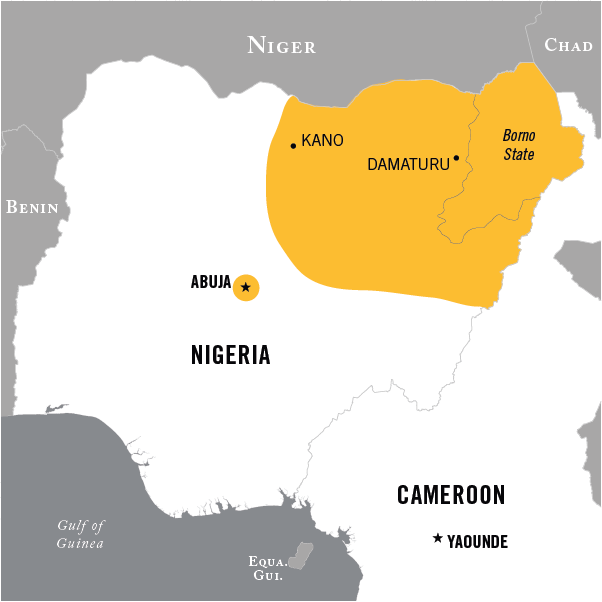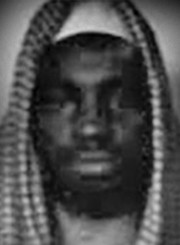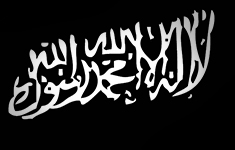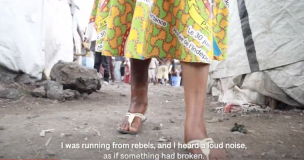An Islamic State faction in Somalia has grown significantly over the past year, carrying out attacks in Puntland and receiving some funding from Syria and Iraq, a report by UN sanctions monitors said on Friday.
The faction loyal to Sheikh Abdulqader Mumin was targeted by US drone strikes last week in the first US operation targeting IS in the Horn of Africa, US Africa Command said.
In the report, the UN monitoring group for Somalia said the IS faction, which was estimated in 2016 "to number not more than a few dozen, has grown significantly in strength" and may "consist of as many as 200 fighters."
Phone records from Mumin showed he was in contact with an IS operative in Yemen who acts as an intermediary with senior IS leaders in Iraq and Syria "though the exact nature of this contact is unclear," said the report.
Former members of the faction who defected in December said the Mumin group received orders as well as financing from Iraq and Syria, the report said.
The group captured the town of Qandala in Puntland's Bari region in October 2016, declaring it the seat of the Islamic Caliphate in Somalia before being pushed out two months later by Puntland forces backed by US military advisers.
In February, IS gunmen stormed a hotel in Bosaso, the economic capital of Puntland and in May the faction carried out its first suicide attack at a police checkpoint near Bosaso, killing five people.
"The group showed signs of increasing tactical capabilities during its first attack target a hotel," said the UN monitors.
Haven for foreign fighters
The UN report raised concerns that the Bari region could become a potential haven for foreign IS fighters as the extremists are driven out of their strongholds in Syria and Iraq.
The IS group in Somalia "presents more natural appeal to foreign terrorist fighters than Al-Shabaab," whose aim is to establish a state government by Islamic law, it added.
Al-Shabaab, another Islamist militant group, is affiliated with IS's global rival Al-Qaeda.
The Bari region has attracted a limited number of foreign fighters including Sudanese national Abu Faris who is on the US terror list for recruiting foreign fighters for Al-Shabaab.
While the faction is expanding, its fighters appear to be poorly paid or not paid at all.
Unmarried fighters receive no salary, while married militants receive $50 per month plus $10-$20 per child, depending on the age.
 These are the misfortunes of a society that has no passion for parents and their children. They have gone and left this terrible world?
These are the misfortunes of a society that has no passion for parents and their children. They have gone and left this terrible world?
The report estimated that the salary payments were between $3,000 and $9,000 per month, allowing IS leaders "to fund its insurgency on a limited budget".
UN monitors said the faction will likely face frequent defections from poorly paid fighters, a problem that also affects Al-Shabaab.

BACKGROUND
Boko Haram, which refers to itself as “Jama‘atu Ahl as-Sunnah li-Da‘awati wal-Jihad” (JASDJ; Group of the Sunni People for the Calling and Jihad) and “Nigerian Taliban”—other translations and variants are used—is a Nigeria-based group that seeks to overthrow the current Nigerian Government and replace it with a regime based on Islamic law. It is popularly known in Nigerian and Western media as “Boko Haram,” which means “Western education is forbidden” (the word boko is a holdover from the colonial English word for book). The group, which has existed in various forms since the late 1990s, suffered setbacks in July 2009 when clashes with Nigerian Government forces led to the deaths of hundreds of its members, including former leader Muhammad Yusuf.

In July 2010, Boko Haram’s former second-in-command, Abubakar Shekau, appeared in a video claiming leadership of the group and threatening attacks on Western influences in Nigeria. Later that month, Shekau issued a second statement expressing solidarity with al-Qa‘ida and threatening the United States. Under Shekau’s leadership, the group has continued to demonstrate growing operational capabilities, with an increasing use of improvised explosive device (IED), vehicle-borne IED (VBIED), and female suicide attacks against a wide range of targets. The group set off its first VBIED in June 2011. On 26 August 2011, Boko Haram conducted its first attack against a Western interest—a vehicle-bomb attack on UN headquarters in Abuja—killing at least 23 people and injuring more than 80. A purported Boko Haram spokesman claimed responsibility for the attack and promised future targeting of US and Nigerian Government interests.

Boko Haram’s capability increased in 2014, with the group conducting near-daily attacks against Christians, security and police forces, the media, schools, politicians, and Muslims perceived as collaborators. Boko Haram continued to raise its international profile in 2015, pledging allegiance to the Islamic State in Iraq and the Levant (ISIL) in March—and publicly using the name “ISIL-West Africa Province” and similar variants—and conducting simultaneous suicide bombings in N’Djamena, Chad, in June—the first such attack in that country’s capital.
Boko Haram’s violence—including the kidnapping of 276 schoolgirls in Borno State, Nigeria, in April 2014—brought international condemnation and in February 2015 provoked a large regional CT offensive against the group that displaced it from the majority of its strongholds in Nigeria. Nonetheless, Boko Haram remains resilient, conducting attacks in neighboring Cameroon, Chad, Niger, as well as Nigeria, emphasizing the threat it poses to Western and regional interests.
The US State Department designated Boko Haram a Foreign Terrorist Organization in November 2013.



 https://youtu.be/Omq1iAgTcKo
https://youtu.be/Omq1iAgTcKo



























